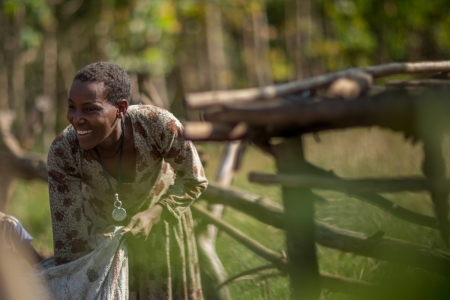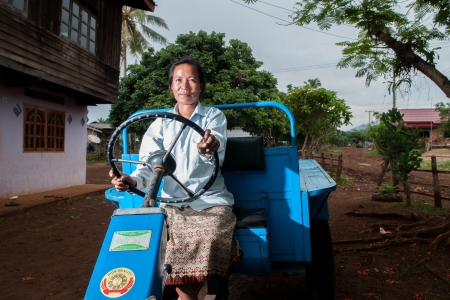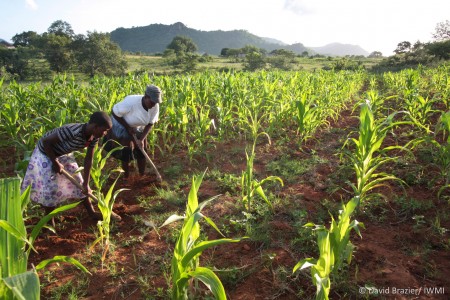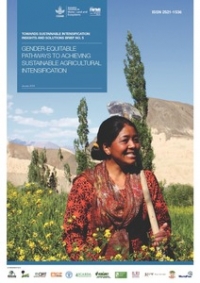“What kinds of seeds are we sowing? What kind of change are we anticipating? And are the seeds we are sowing fit for the current climate?” These questions by Professor Katherine Gibson of Western Sydney University launched Seeds of Change, the CGIAR Gender Platform’s Annual Scientific Conference, bringing together almost 300 researchers and practitioners from all fields of agriculture.
What kinds of seeds are we sowing? What kind of change are we anticipating? @ACIARCEO chairs opening keynote by Katherine Gibson at the #SeedsofChange19 conference #genderinag @ACIARAustralia @UniCanberra @CGIARgender pic.twitter.com/egUwfBrWyQ
— WaterLandEcosystems (@WLE_CGIAR) April 3, 2019
Held April 2-4 in Canberra, Australia, the conference focused on gender and agricultural research for development.
"It's no longer a question of why we are incorporating gender, it really is a question of how," stated Dr Jayne Curnow, Research Program Manager for Social Sciences for Australian Centre for International Agricultural Research (ACIAR), reinforcing the need for gender equality within research for development.
“Equity," clarified Curnow, "is women and men coming from different starting points due to historical and ongoing inequitable gender relations. But equality is women and men having equal rights, opportunity and status - these are the days I dream about.”
"It's no longer a question of why we are incorporating gender, it really is a question of how." Dr Jayne Curnow at the #SeedsofChange19 encourages a shift in perspective and a need for collaboration for #genderinag and #R4D @ACIARAustralia @CGIARgender @UniCanberra pic.twitter.com/R9U8CIlrPI — WaterLandEcosystems (@WLE_CGIAR) April 3, 2019
Seeds of Change is the largest global conference focusing on gender equality and agricultural research. It is jointly funded by the ACIAR, CGIAR Collaborative Platform for Gender Research and the University of Canberra.
Throughout the workshops and the sessions, a recurring theme was addressing the gender norms that perpetuate and reproduce inequalities.
“We need to examine the structures that frame what we do and how we do them,” said Curnow her keynote. “Historically, we have been looking at what is on top of the iceberg - what is visible to us - rather than what is at the root of these issues.”
Understanding issues with such influence from larger structural norms requires approaches that reflect the complexities of context.
Dr Jemimah Njuki, Senior Program Specialist at Canada's International Development Research Centre (IDRC) emphasized the importance of acknowledging these complexities in real transformation, “When the term empowerment went into the mainstream, a lot of its meaning was reduced. During the sessions we had a lot of good conversations of real transformation and how we remain true to some of these concepts we have been talking about.”
Participants also stressed the need for collaboration - across disciplines and sectors.
“If we want change, everyone needs to be on board,” said Dr Hazel Malapit of the International Food Policy Research Institute lead by the CGIAR Research Program on Agriculture for Nutrition and Health, “Donor and researchers should be working on the same agenda and these approaches should be integrated and working together.”
WLE addressed this strong call for partnership, collaboration and dialogue in the WLE/IWMI side session Rethinking Agriculture: Is sustainable, inclusive intensification possible? The session focused on the dual goal of sustainable agriculture intensification (SAI) and achieving equality.
Panelists included gender and water experts from varied backgrounds and perspectives - ranging from feminist political ecology to governance structures to small-scale irrigation. Participants of the session agreed on the complexity of the issue and its cross cutting nature, emphasizing a need for further work defining SAI and ensuring inclusivity within this approach.
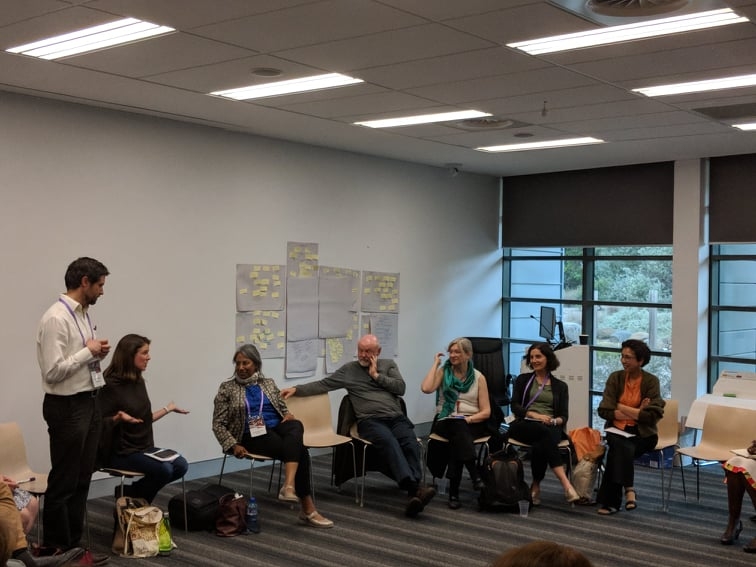
“Having more of these dialogues in spaces outside of the farms and communities is needed,” says Deepa Joshi, Gender, Youth and Inclusion lead of the CGIAR Research Program on Water Land and Ecosystems and the International Water Management Institute, “We need to converse with policymakers and institutions to strategically sustain these processes, to talk across sectors and accept multidisciplinary approaches.”
WLE affiliated researchers Indika Arulingam (IWMI) and Ruth Meinzen-Dick (IFPRI) also presented research carried out through other CGIAR research programs. Arulingam presented on youth involvement and youth aspirations of fisheries and aquaculture. Meinzen-Dick presented on the Women’s Empowerment in Agriculture Index (WEAI) and Women’s Tenure Security on Collective Lands, noting that land rights are embedded in social relations and thus governance arrangements are important in securing women’s collective tenure.
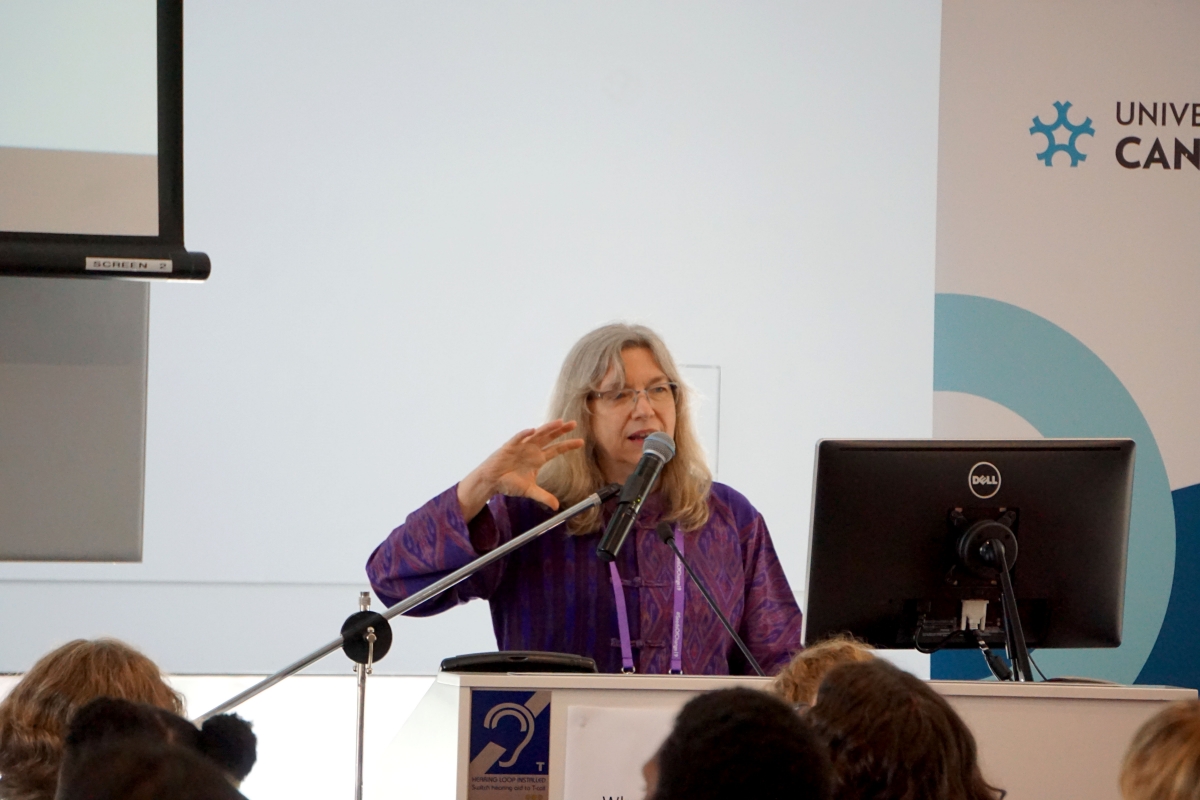
<p>Ruth Meinzen-Dick (IFPRI) presents on Women's Tenure Security on Collective Lands</p>
Other key insights shared during the week include:
"We think of the feminization of agriculture and all of the great things it holds. And yet, right now there is much for the feminization of labor rather than the feminization of control and access." - Deepa Joshi (WLE/IWMI) chairs Gendered division of labor and agrarian change session and comments on trends of the case studies presented.
“We need to avoid the empowerment bandwagon with no motor. You need to design and strategize for empowerment. It is a conscious decision.” - Dr Hazel Malapit (IFPRI/A4NH) explained in a Tuesday workshop on the Women’s Empowerment in Agriculture Index (WEAI).
“We’re at a critical stage in terms of how to support gender research. We have to do more than agree it’s important - we have to fund it..” - John McDermott, the Director of CGIAR Research Program on Agriculture for Nutrition and Health (A4NH), remarks during a conversation with men champions of gender equality panel.
For daily summaries of the event, please see CGIAR Gender Platform.


